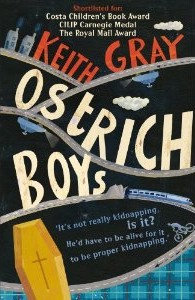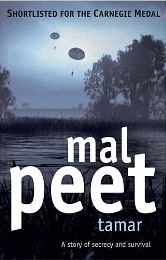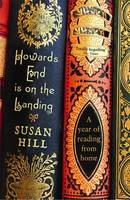A combination of things (several rail journeys and flights including two long haul, waits at airports due to snow, an unexpected 2 day diversion to a hotel outside Istanbul again due to snow, a few days illness after Christmas, and a power cut lasting a whole morning) have all meant that I have spent more time reading than usual. Now it is not that I do not want to read, and it has always been one of my chief pleasures, but as an academic, paradoxically, for many years my reading has narrowed to the next report, thesis or paper to review shutting out not just reading for pleasure, but any academic book or article that was not immediately necessary for the next deadline.
However, I have been wonderfully forced by circumstances back to the page.
I have already written about one of these “The Shadow of the Wind” while I was travelling, itself a book about books, and while travelling I also read Kathryn Harrison’s “A Thousand Orange Trees” (an eye opening but unrelentingly depressing vision of women’s life during the Spanish inquisition), Frank McCourt’s “Angela’s Ashes” (a sometimes depressing, but also glorious account of a hard Irish childhood), Jodi Picoult’s “Change of Heart” (on the death penalty and religion) and Elizabeth Gaskell’s “Ruth” (a wonderful book about the small mindedness and great generosity of the human spirit, especially remarkable when seen against its time).
… and then I had some new books for Christmas …



At first Keith Gray’s “Ostrich Boys” seems like a classic boy’s book with three friends ‘kidnapping’ the ashes of their friend Ross in order to give him a proper send off at Ross in Scotland. Like all journey stories, a mixture of going on against the odds and self discovery, not in the league of Cynthia Voigt’s “Homecoming“, but more likely to be read by boys wanting a good adventure and being stretched in the process.
Mal Peet’s “Tamar” is clearly for ‘young adults’, a claustrophobic tale of war time resistance in 1945 cut through with a ‘modern day’ tale. This parallel tale is a hard genre, and, like Joan Lingard “Natasha’s Will“, I felt Peet managed the 1945 tale better than the current day one1. Although Peet is writing for an older audience, I was reminded of the way Nina Bawden manages to get me to identify, however unwillingly at times, with the flawed characters in her children’s novels.
Susan Hill’s “Howards End is on the Landing” is, like “The Shadow of the Wind“, a book about books, but whereas Zafon’s Novel is set against a fictional library, Susan Hill tells us about her own bookshelves, which seem to coat and fill, like windblown snow, every wall and nook in her house. She decides to spend a year reading only the books she already has on her shelves, a decision that coincides with a resolution to minimise use of the internet:
Too much internet usage fragments the brain and dissipates concentration so that after a while, one’s ability to spend long, focused hours immersed in a single subject becomes blunted. Information comes pre-digested in small pieces, one grazes on endless ready-meals and snacks of the mind, and the result is mental malnutrition. (p.2)
This reminds me a little of Andrew Keen’s “The Cult of the Amateur” except Susan Hill says it more succinctly and elegantly.
Hill’s reading is both eclectic and catholic, encompassing Ian Flemming along with Trollope and Chaucer. She takes Enid Blyton and J.K. Rowling seriously for their contribution to literacy (although unlike me does not re-read the former), and is happy to say that she never feels comfortable with Austin. As she describes the titles she finds, sometimes lost between unlikely bedfellows, I am inspired to read them all and also to look to my own shelves:
A book which is left on a shelf for a decade is a dead thing, but it is also a chrysalis, packed with the potential to burst into new life. (p.2)
Susan Hill’s knowledge is amazing and the book is filled with anecdotes about authors she has met, known and corresponded with, giving hints of the inside story of many 20th century writers. Sometimes I am surprised at her choices or rather not what she chooses, but more what she rejects. In her list of books she has not read she includes:
Buddenbrooks. Thomas Mann
I want to read this . I mean to read this. I really do.
but also:
Romola. George Elliot
I do understand how I can have not read it. (p.70)
Why? Does she mean she can understand why it has not crossed her path, or that she does not want to read it? It is a book I have re-read several times, although always wishing the ending could be different. I know she does not like “A Tale of Two Cities” feeling that Dickens is at his best when dealing with (for him) the contemporary; maybe she fears the same is true of Elliot?
However, Hill never assumes that her tastes are her readers’ tastes, she does not select the ‘good’ books, but the books she wants to read.
Sadly she does not supply a list of all the books she read during the year, but at the end she gives a ‘top 40’ list, with some I know well such as “The Mayor of Casterbridge“, some I know of but have never read, such as “A Passage to India“, and some I have never heard of such as “Flaubert’s Parrot“. An instant Amazon Wish List!
Top of her top 40 are the Book of Common Prayer and the Bible (King James Version) — in the text (p173/174) deliberately in that order, but for some reason in the list at the end the Bible comes first, did she rethink after writing, or is it an editorial decision to make the list look neater?
This reminds me that I need to retrieve my battered school bible from underneath the pew where I left it after the Christmas morning service. Also, the last of my Christmas reading (helped enormously by the enforced internet blackout due to the power cut), a book of Fiona’s “Whose Bible Is It?” by a biblical scholar and champion of inter-faith relations Joroslav Pelikan. It is a book about a book, or rather a book about books, as Pelikan reminds us that the word “Bible” strictly means “little books”. I know some of the history of the forming of the modern Bible, but Pelikan’s encyclopaedic and detailed knowledge shines through. I had not realised that it was the Greek Septuagint rather than the Hebrew Tanakh (Old Testament) that is quoted by the New Testament writers, making odd the decision of the early Protestants to excise the ‘Apocrypha’ (the writings in the Septuagint but not in the Hebrew).
It is a short and very readable book, but at times I found myself wanting to know a little more on some points. When discussing the dates of the Gospels Pelikan notes that Mark is usually dated at 70CE, but doesn’t explain why. Previously I’ve seen the same date quoted with the reason being that the Gospel appears to predict the fall of Jerusalem which happened in 70AD and therefore must have been written after. This argument seems to presuppose that prediction is impossible and by analogy would inevitably lead to future historians excising or re-dating several of Vince Cable’s statements prior to the 2008 financial crash. Maybe there is a better reason, or maybe, like other academic disciplines, biblical scholarship is a servant of its assumptions.
And now … no more power cuts and the internet is flawless, but trying not loose momentum with Sheila Stewart’s “Pilgrims of the Mist“, Mike Parker’s “Map Addict” and George Basalla’s “The Evolution of Technology” all on the go … maybe another post in a couple of weeks.